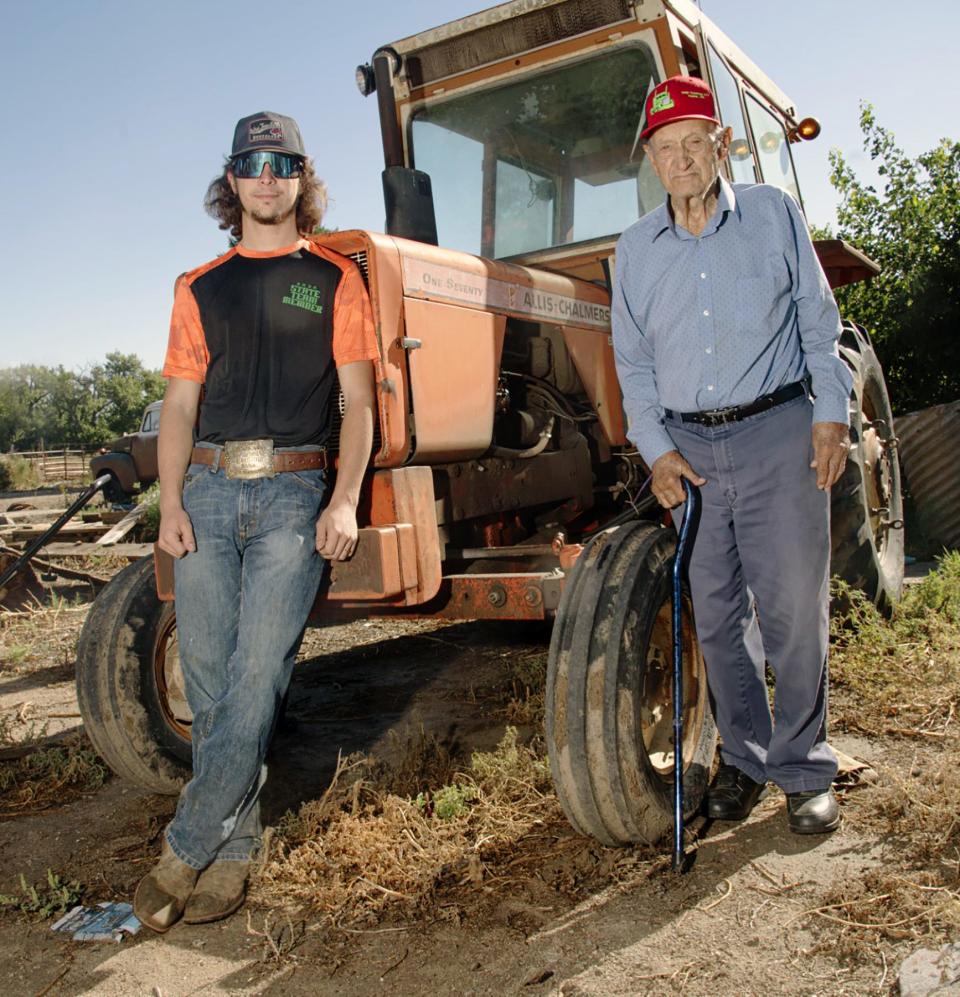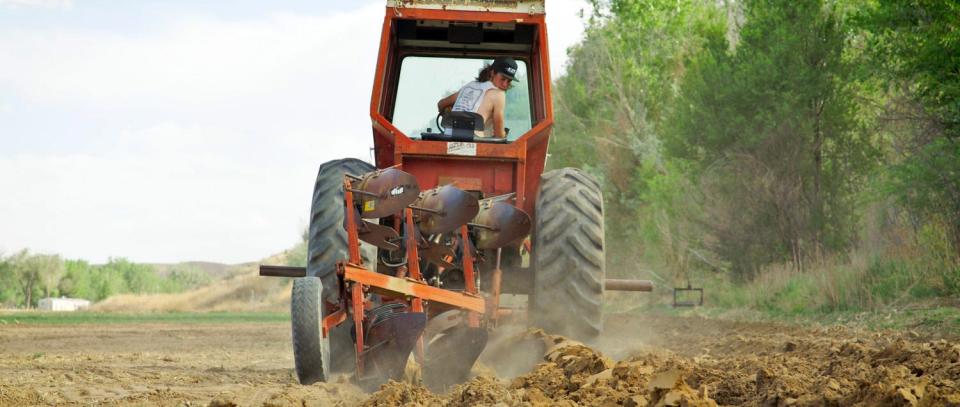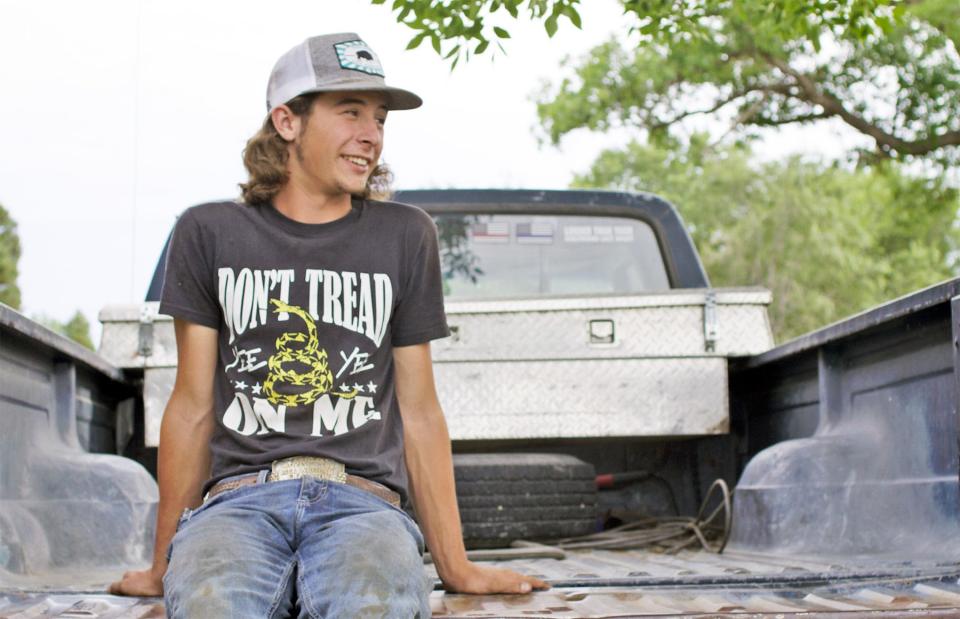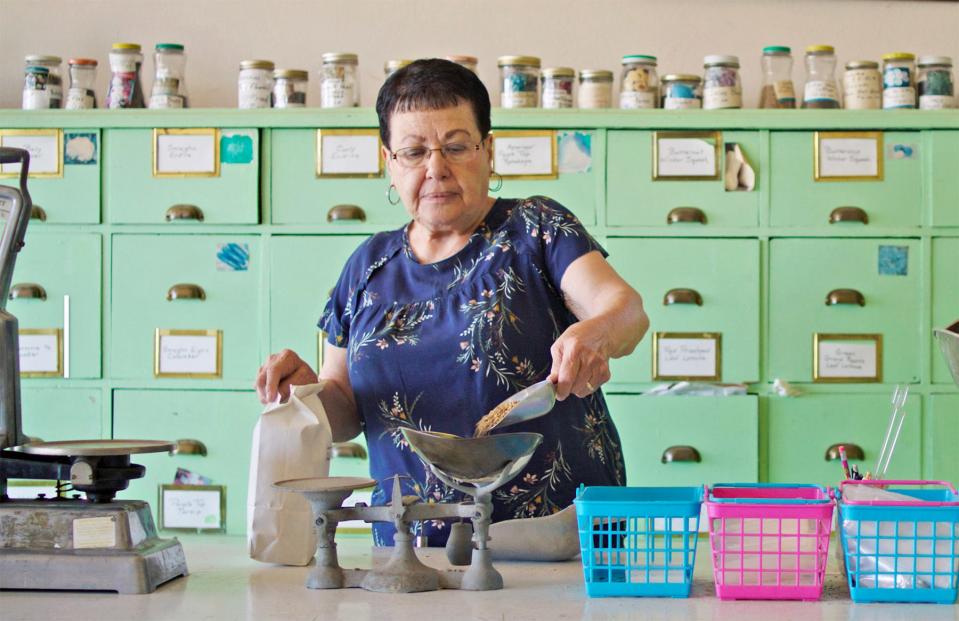'Once it's gone, it's gone': Pueblo farmers work to preserve farmland on the Mesa
Pueblo's rich history as a farming community could some day be a thing of the past as younger generations move away from the hard work and less-than-stellar profitability of agriculture and look to a different way of life.
The lessons of the past and how they will impact the future of the farming community on the Mesa east of Pueblo are the focus of a new documentary film, "Mirasol: Looking at the Sun." Several local farming families are featured in the film, helping to shine a spotlight on those things they love most — Pueblo chiles, fresh produce, vital farmland, precious water, family connections and a way of life that could very well fade away.
Two local families agreed to share their stories with the Chieftain in advance of the Pueblo premiere of the film.

'Once it's gone, it's gone': The Martellaro family
Tony Martellaro worked in the rail mill at Pueblo's steel operation, but he consistently saved his money and eventually bought a 79-acre farm on the Mesa.
"It wasn't really much of a farm at the time — it was all kind of terrible land," said his grandson, Jace Martellaro. "He bought a bulldozer and a scraper and spent all his free time off from the mill leveling the entire piece of property and trying to make some good farmland out of it."
"He ended up digging the irrigation ponds as well. From then on, he and my father Frank, my uncle Anthony, and aunts Jeanette, Debbie, Christine and Lisa just farmed it," Jace Martellaro explained.
They raised sheep, hogs and a few cows, as well as trained and sold horses.
"His (Tony's) big thing for a long time was growing sugar beets and selling them to market. Eventually sugar beets kind of fell out of popularity so he went on to the livestock feed side of things and started growing corn, alfalfa, hay grazer and stuff like that — that has continued on to today," Jace Martellaro said.
Jace Martellaro grew up on the farm and his first memory was riding around on a gentle horse that his father and grandfather had trained. He was about 4 years old and his dad "would just lead me around on the horse while he was watering the cows and setting irrigation," he recalled.
Now 18, Jace Martellaro admits he is a rarity among Generation Alpha.
"It kind of seems to be none of the younger generation I am in wants to farm," he said. "They don't have a passion for it and it's not really profitable."
"I love being out there working the land and seeing the crops grow. It really is something I would like to continue on doing."

Jace Martellaro isn't sure what will happen with the family farm and finds the uncertainty "really worrisome."
"There are just a handful of us who still have the passion for it and it would really suck to see the small farms go away," he said.
He noted that consumers, who would have to rely on large commercial farms for their food and even their dog food, would eventually pay a much higher price.
Jace Martellaro wanted to participate in the documentary "because it really touched me how hard it is to keep a hold of farmland."
"A lot of time it's resold to make money and it ends up subdivided," he said. "We can't really reclaim the farmland. Once it's gone, it's gone."

The Williams Farm and Seed Store
Sandy Cardinal was working in her family's Williams Seed Store when she was asked if she could be photographed by Mirasol Film Director Ben Knight and Field Producer Dillon O'Hare as she was waiting on customers. She said that would be OK with her.
"I wondered, 'Who are these guys?' and the next thing I know, here we are making raviolis and having dinner with them," she said with a laugh.
As she shared the story of her family's farm, dating back more than 100 years, she found herself not only agreeing to participate in the film but also feeling a new desire to dig even deeper into the farm's history. It "opened our eyes to the importance of saving land, water and our way of life for the future," she said.
"The Mirasol film is a very important lesson we should all have to learn. The new generation has no idea how important the water, land, raising food and family are," she explained.
"They say with the blink of an eye those resources will be gone in the future if not preserved and protected now."

For Cardinal and her brothers, Norman and Bobby, it all started when their grandfather, Angelo Guglielmo, immigrated to the United States from Trenta, Italy, in 1892. He landed in Pueblo in 1894 and like so many others, came to work in the steel mill.
During his off time from the mill, he didn't sit idle. Guglielmo started learning how to farm by helping out other farmers in the area.
"In 1913, he decided to buy the whole block from 21st to 23rd Lane for $1,250. He bought it from the company that owned the steel mill," Cardinal said.
Along the way, Guglielmo Americanized his name to Williams and raised five sons here. One son died, but the remaining four each got a piece of the farm by pulling straws to determine the division of the land.
"My dad Henry was selling produce in Salida when he met my mom, Rose Alloy, in 1927. They decided to start the seed store in 1936," Cardinal said.
In addition to the seed, the family sold chicken feed and other supplies, plus Henry sold Case Co. tractors.
"The back half of the store burned down in the 1950s, but that did not stop my dad as he continued to sell seed from the front of the store. As we grew up, Norman and I ran the store and Bobby took care of the farm," she said.
"I can remember working in the store starting at age 13 or 14. We worked as a family and family is everything," Cardinal explained.
"We did all that until last year," she said. But as her older brothers have struggled with health issues, the family "thought it would be best to put it up for sale."
"I do love it and I am having a hard time with that, but the people we hope will buy it want to keep it as a farm and might even reopen the store," she said.
"We were deeply humbled and grateful to have a small part in this film. We were touched by the newfound interest in our farm and family."
More farm news: Williams Seed Store still growing strong as a Pueblo mainstay in its 85th year
Chieftain reporter Tracy Harmon covers business news. She can be reached by email at tharmon@chieftain.com or via X, formerly Twitter, at twitter.com/tracywumps. Support local news, subscribe to The Pueblo Chieftain at subscribe.chieftain.com.
This article originally appeared on The Pueblo Chieftain: Pueblo farmers try preserving farmland on the Mesa through documentary

